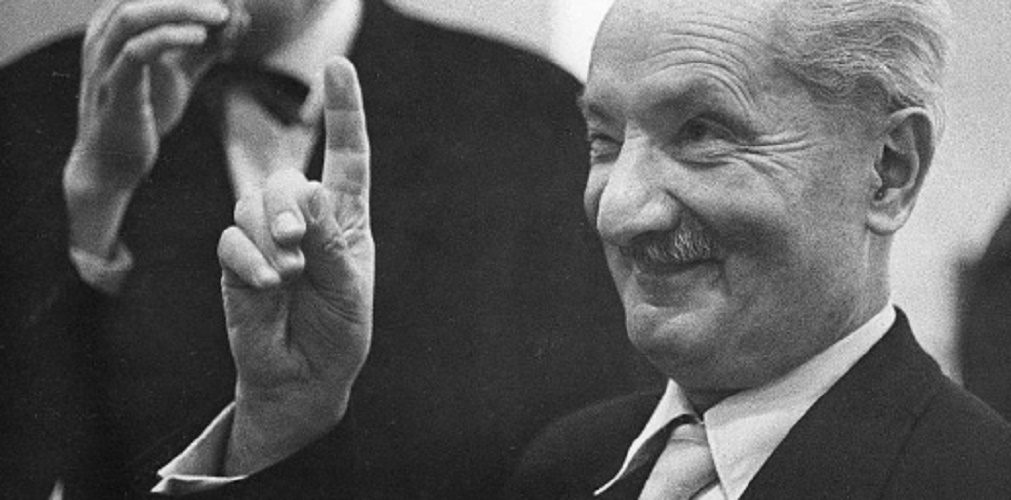What is Existentialism?
We explain what existentialism is and what its main characteristics are. In addition, the origin of this famous philosophical current.
-
What is Existentialism?
Existentialism is one of the main philosophical currents that have marked the past century . With still validity but with many detractors (mainly from the structuralist currents), existentialism has been one of the theories that came to rescue the role of the individual from oblivion in which he was in the philosophical tradition of the time.
There is no absolute agreement on what existentialism is because, unlike other philosophical currents, it is not systematized or encapsulated in a specific period of time (since many claim that it extends from the mid-nineteenth century to the present ).
In fact, very few authors have recognized themselves as “existentialists” during their lifetime . It has usually been a later conceptualization of authors who have rethought the work of these authors in this philosophical key.
-
Existential characteristics

Despite this, we can affirm that existentialism is a modern philosophical current (that is, resulting from Modernity) in which the subject is the center of philosophical reflection, understood as being free and self-conscious that determines itself.
It strictly rejects the conceptualizations that tend to determine the individual or any “essence” superior to it, thus highlighting the importance of the decision and the constructive process of man through his own actions. Topics such as anxiety about the world , loneliness, responsibility, etc. stand out.
Without a doubt, its greatest exponent is Jean Paul Sartre, although we also find authors such as Martin Heidegger , Albert Camus and further back in time, Søren Aabye Kierkegaard. Obviously, all these authors have had their own theoretical development, but they have in common their concern for the place of man in the modern world and its consequences.
-
Origins of Existentialism
Some authors affirm that existentialism has existed throughout history , at least sporadically and in isolation in some works by great authors of philosophy and even religion . However, it is in Modernity when existentialism takes shape .
The break with religious ideas in the West, coupled with the rise of the bourgeoisie and capitalism , brought man to the center of the scene: it is no longer God who determines individuals, but it is man who must determine himself . This was a crucial break in philosophy, starting with Descartes until today.
Now, it was during the 19th century that authors such as Friederich Nietzsche and Søren Kierkegaard took place. The latter was the great existentialist of the twentieth century, giving primary importance to the concept of self-relation. Kierkegaard understood that the “I” is in a continuous relationship with itself , it is the only thing that remains constant, highlighting the importance of knowing oneself, even before what surrounds us. Protestant in nature, his work is plagued by issues related to faith, and he is known for being one of the leading “religious existentialists.”
We can also notice existentialist influences in the works of Fiódor Dostoyevsky or the questioned work of the German philosopher Arthur Schopenhauer, but to a lesser extent than the two authors named above.
-
Existentialism in the twentieth century

Martin Heidegger develops his theory at the beginning of the twentieth century , warning about the dangers existing in modern society and about the need for an understanding of being different from the one we had so far. Starting from the concept of “dasein” or being-in-the-world, he takes a much more pessimistic position on man. This author understood man as “ecto”, as thrown into the world, destined for a horrible pain in the world.
However, it is history that exercises an inevitable setback to philosophy. Existentialism takes on major importance after the events that occurred in the world wars. After finishing the illuminist ideal of indefinite progress and a society without wars , man was almost reduced to its minimum expression.
From the use of the latter by the great dictatorial leaders, the great masses moved to wars in pursuit of a nationalist sentiment, all this led to “radical evil,” in terms of Hannah Arendt.
Faced with this situation, what was the subject’s role? What was his responsibility towards the world, against what happened? How does he face the “banality of evil”, that individual stripped of any feeling of responsibility, stripped of your ability to follow, who only follows orders?
-
Sartre: the greatest exponent
Given this, Jean Paul Sartre appears, considered the greatest exponent of existentialism to date. To summarize in a few words Sartre’s thinking is not simple, since he is strongly influenced by the particular historical situation and at the same time heir to a long historical tradition.
Like all modern philosophy, it rejects the existence of some god or supreme being . In addition to this, it denies its own human nature and even takes a more daring step for philosophy in general: not only is there no essence without existence, but existence precedes any essence.
Sartre’s doctrine opposes pessimism , understanding action as one of the solutions to existential anguish derived from loneliness against the world.





